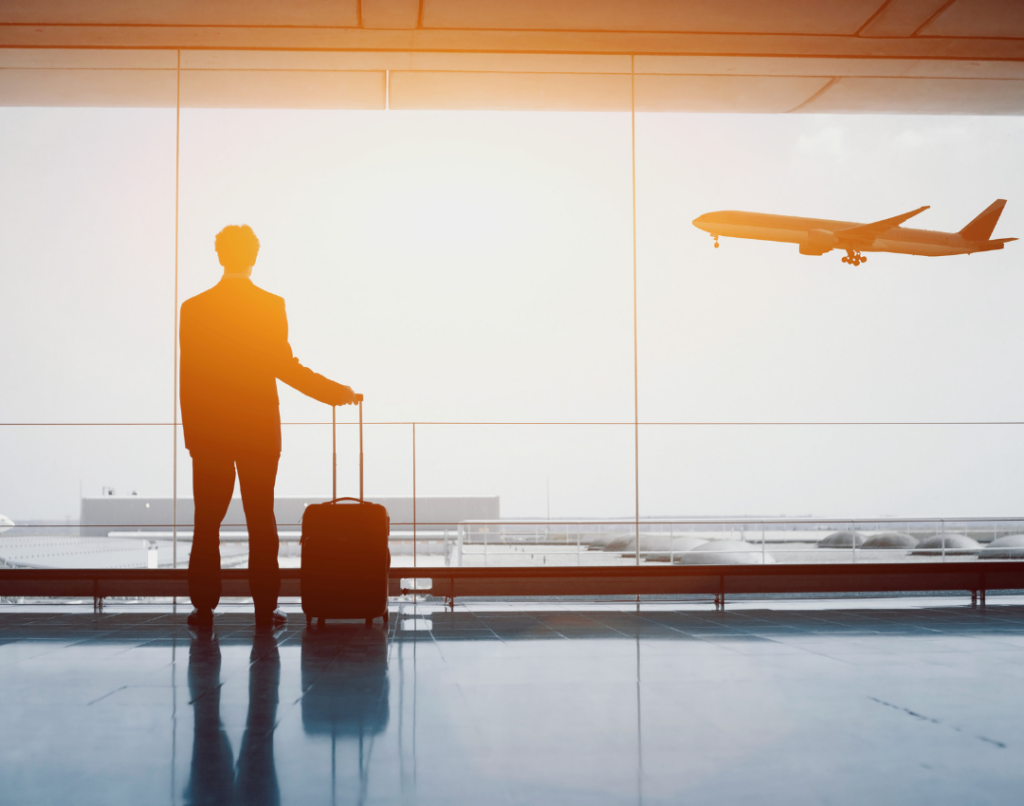Managing a travel programme today goes well beyond booking flights and accommodation. In 2025, with traveller wellbeing remaining a top priority – as highlighted in our Business Travel Trends: Predictions 2025 – a detailed pre-trip checklist is key to ensuring a seamless and safe journey. Read our updated guide for stress-free travel.
Passports and visas
- Ensure passports are valid for a least six months beyond the travel date and meet all entry requirements. This also includes potential trip history, as some countries may restrict entry based on prior travel to specific locations.
- Travellers with dual nationality should determine which passport offers better visa or entry conditions for their journey.
- Confirm if visas, including electronic travel authorisations (ETAs) or transit visas, are required. Many destinations are moving towards streamlined digital visa systems in 2025.
- Stay compliant with Brexit regulations and the Schengen Area’s 90/180-day rule.

Airports and flights
- Are boarding cards all to hand? Encourage travellers to download them to smartphone wallets or, as a Reed & Mackay client, access everything at speed via our mobile, if you have opted for online check-in.
- Check whether travellers have fast track through certain airport security, speedy boarding and lounge access.
- Check cabin and hold luggage polices per airline, ensuring clarity on carry-on allowances and fees. Clarify whether an under-seat bag is allowed alongside overhead luggage.
- Pre-book meals on flights, particularly if there are any dietary requirements.
- Book ahead if any kind of assistance is required at destination airports.
- Reconfirm flights before return journeys. Many airlines now send real-time notifications for gate changes and delays directly to travellers’ devices.
Stay safe on the move
- Identify whether hotels provide free transfers. If not, use approved taxi or rideshare services integrated into your travel platform for safer options.
- Pre-book public transport tickets where possible. In 2025, many cities offer contactless or app-based payment systems. Research local safety for walking routes.
- When booking a hotel room, check its location and, for extra security, research the hotel’s safety measures and request rooms away from the ground floor.
- Use pre-approved venues for external meetings. For added safety, choose seating options that meet personal preferences, such as areas away from windows.
- Store local emergency service numbers and ensure travellers have contacts for on-ground support.
- If hiring a car, check the traveller understands the fuel consumption the car uses and safe places to stop to refuel or recharge, if hiring an electric vehicle.
- Verify the traveller’s medication is legal in the destination country. Carry an internationally recognised medical card or app for allergies and conditions.
- Ensure comprehensive insurance that includes coverage for medical emergencies, trip delays, and natural disasters. Research the nearest hospitals for peace of mind.
Cultural knowledge
- Review cultural norms around clothing and behaviour, especially if visiting conservative regions or eco-sensitive areas. Climate-friendly, adaptive packing is encouraged for leisure extensions.
- Utilise digital wallets or multi-currency travel cards for safer, more efficient transactions.

Security measures
- It’s advisable to only take costume jewellery when travelling and to leave expensive items at home. Confirm hotel policies for securing laptops or other valuable items.
- Can your company provide any in-country training prior to departure? Highlight to your business travellers what the protocols are should there be mass disruptions (social or environmental) at their destination and what to do if the airport closes.
- Clarify duty-of-care policies for blended business and leisure travel. If travelling with family, confirm travel insurance and allowable activities.
Plan B – thinking ahead
- What’s the back-up plan if luggage doesn’t arrive? Find out where travellers can easily source clothes for meetings.
- Share contact information for the traveller’s embassy or consulate, in case of a lost or stolen passport.
- Pre-book an additional night at their hotel. If their flight is cancelled and hotels are busy, it may make things simpler.
Did you know…?
A travel management company can support with all of the above to help deliver stress-free travel. Reed & Mackay clients have access to our 24/7 global Incident Management Unit, which monitors incidents across numerous sources. In addition, clients can find all the latest travel and health restrictions from around the world. Plus access to our unique travel risk platform providing traveller tracking.
Get in touch
Mail [email protected] to discuss all of your corporate travel and event management needs.




